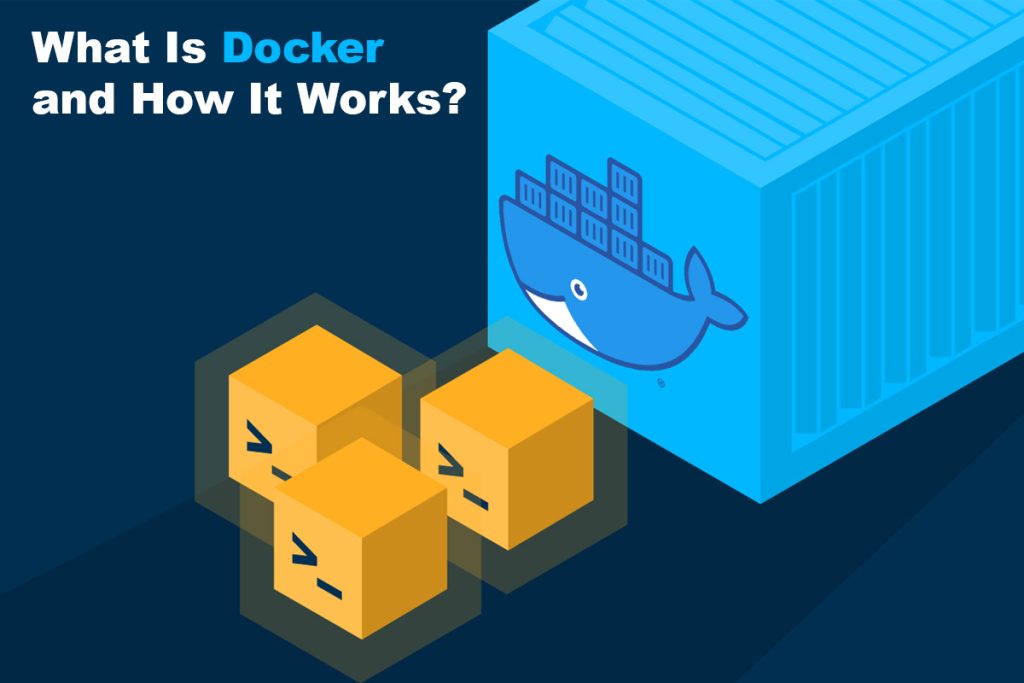What the heck is Docker??

Unboxing the Docker Mystery – A Tale of Containers and Simplicity
Hey there, tech wanderers! Today, we’re on a mission to unravel the enigma that is Docker. What in the world is it, and why does everyone seem to be talking about it? Fear not, we’re going to break it down in the most laidback and engaging way possible. So, grab your favorite beverage and let’s embark on this casual journey of discovery.
What Is it, Anyway?
Docker is like a tech fairy godmother for your applications. Imagine you have this awesome software you want to share with the world, but it’s a bit like sending someone a recipe without the actual dish. Docker swoops in to solve this by packaging your app along with all its ingredients—code, runtime, libraries, and tools—into what we call a container. Think of this container as a magical, self-sufficient box that can run your application seamlessly, regardless of where it lands.
Containers are revolutionary in the software world because they ensure that your app behaves the same way everywhere. No more crossed fingers and holding your breath when moving from development to testing to production. Docker eliminates the “it worked on my machine” dilemma, making your software truly portable and consistently reliable across different environments.
Why Was Docker Invented?
Picture this: developers were having a hard time ensuring that their applications worked the same way across different environments. The classic “It works on my machine” problem. Docker came to the rescue as a solution to this headache. It allows developers to bundle their applications and dependencies into containers, ensuring consistency and making it a breeze to run those containers on any machine.
The Docker Magic: What Does It Do?
Docker’s magic lies in its ability to simplify the complex dance of deploying and running applications. It brings order to the chaos by providing a standardized way to package, ship, and run software. Here’s the real charm: Docker allows developers to focus on writing code and building features, rather than dealing with the headache of environment discrepancies.
The magic continues when it comes to scaling applications. Docker allows you to run multiple instances of your containers, ensuring your application can gracefully handle more traffic without breaking a sweat. This scalability is a game-changer for developers and system administrators, making it easy to adapt to changing demands without the traditional headaches associated with scaling.

How Does Docker Work?
Now, let’s demystify the inner workings of Docker. At its core, Docker operates using a client-server architecture. The Docker client, the friendly interface you interact with, talks to the Docker daemon, the behind-the-scenes powerhouse. This daemon is responsible for creating and managing various Docker objects like images, containers, networks, and volumes.
Now, imagine an image as a frozen moment in time, capturing the essence of a container. It’s like a snapshot that contains all the necessary ingredients for your application to run smoothly. Containers, on the other hand, are living instances of these images. When you run a container, Docker creates a dynamic environment where your application can thrive. The beauty of Docker lies in its ability to turn these images into active containers consistently, ensuring that what worked in one environment will work just as seamlessly in another. It’s like having a recipe book for your app that anyone can follow, regardless of their kitchen setup.
Shut up already! Tell me how to get this black magic!
Alright, alright! If you want to learn how to get started with docker, I made a bitesized how-to here!
Your Ticket to the Docker Adventure
There you have it, a laidback guide to understanding what the heck Docker is. It’s your secret weapon for consistent and hassle-free software deployment. Whether you’re a seasoned developer or just dipping your toes into the tech world, Docker is here to simplify your life.
Have you tried Docker before? Did it blow your mind or leave you scratching your head? Share your Docker tales in the comments below. Let’s keep the conversation going!
